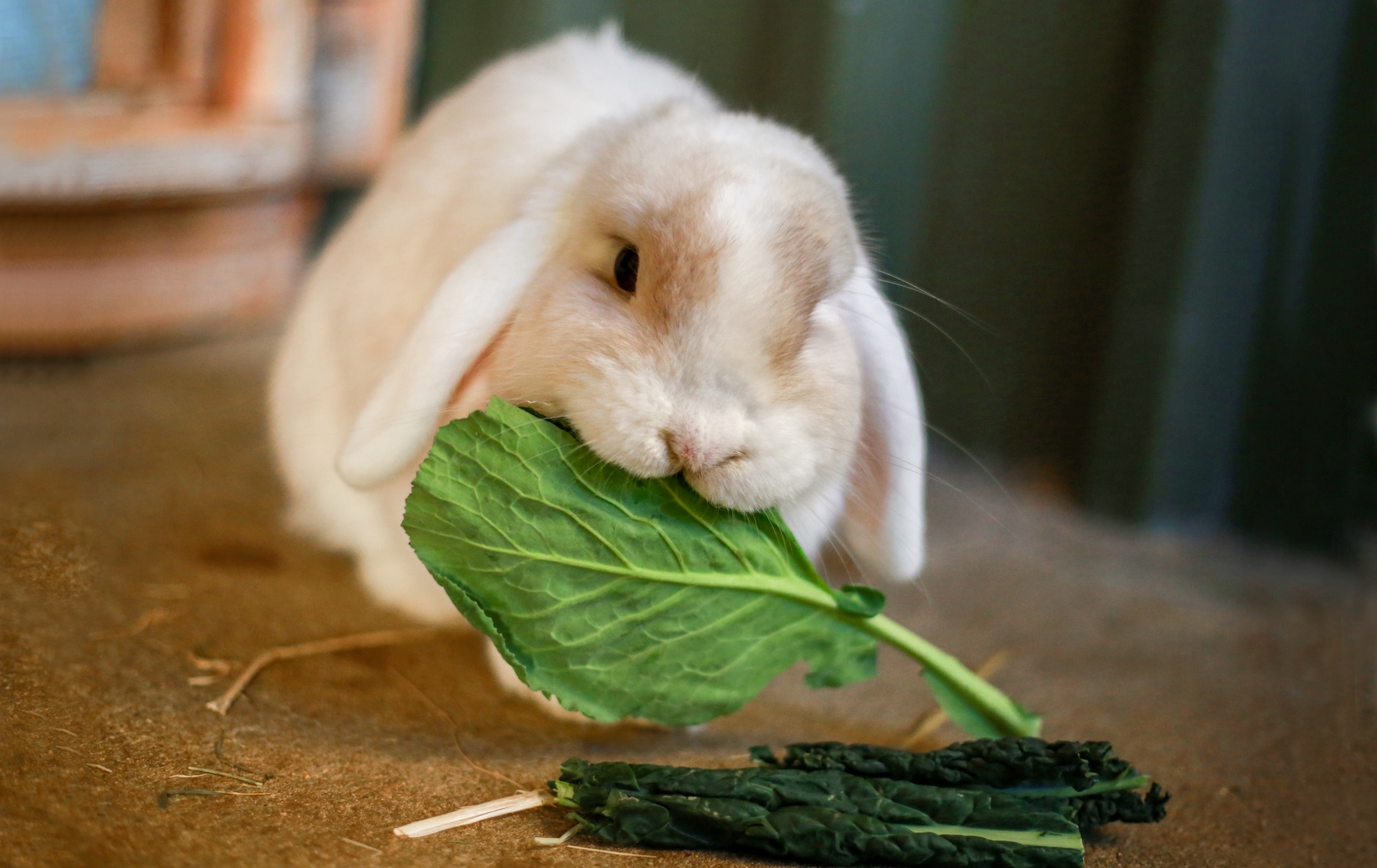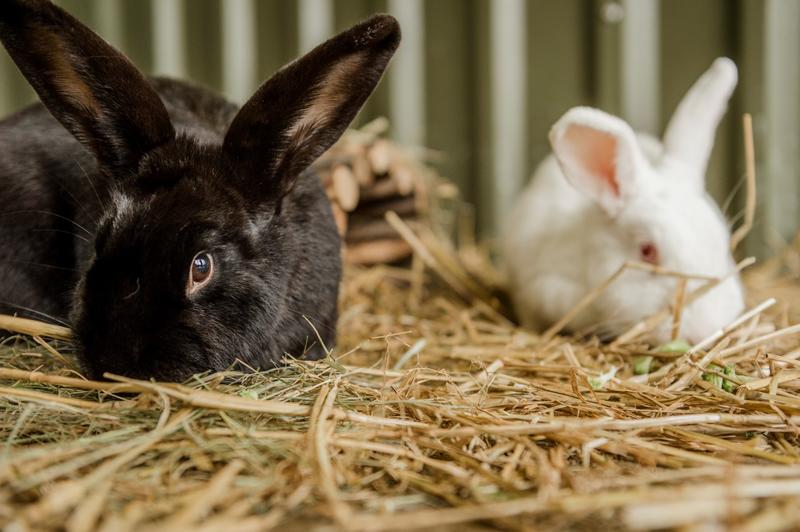
What food is best for rabbits?
Rabbits really are what they eat. Domestic bunnies haven’t changed physically from their wild cousins, and their bodies are designed to graze throughout the day. A rabbit’s digestive system is crucial for their health; it needs to tick along constantly to keep the body in good working order.
Rabbits need three different food types for a healthy diet:
- A constant supply of hay or fresh grass to nibble on (85-90 per cent)
- A variety of fresh veg and leafy greens (10 per cent)
- Small quantity of high-fibre pellets (5 per cent)
Read more about each of these, why it’s important to get the balance right, and easy ways to work out these percentages, below.
Why rabbits need to eat lots of hay or grass
Rabbits need a constant supply of hay or fresh grass to nibble on – in fact, 85 to 90 per cent of their daily diet should be made up of the stuff. This should be available to them throughout the day.
How much hay or grass do they need?
A ball of hay around the size of their body per day.
Rabbits’ teeth continue to grow throughout their lives, so they need to chomp on fibrous hay or grass to help wear the teeth down. As well as preventing teeth from overgrowing, access to a constant supply of hay keeps their digestive systems moving along healthily.
Feeding your rabbit a high percentage of grass or hay will help keep overgrown tooth and associated mouth problems, like abscesses, at bay.
Plus, like all animals, rabbits need to be able to exhibit their natural behaviour so spending much of the day nibbling and foraging means your bunny will be a happy one.
Important
Freshly cut grass by a lawn mower or strimmer is toxic to rabbits and can cause serious health problems, so don’t give this to them. Instead pick the grass or cut it with scissors, and feed it to your rabbit straight away.
Fresh vegetables and leafy greens
Around 10 per cent of your bunnies’ meals should be made up of fresh and washed vegetables and leafy greens.
How much veg do rabbits need?
A quantity of herbs and vegetables that amounts to about the size of your rabbit’s head, per day.
Think natural – good foods are spinach, kale, watercress, broccoli, celery and dandelion leaves. Rabbits also enjoy munching on fresh herbs such as mint, parsley, dill and thyme.
Note
Carrot, sweet potato and fruits, such as apples, make tasty treats for bunnies, but are high in sugar or starch, so should only be eaten a couple of times a week.
High-fibre pellets
The final five per cent of a rabbit’s daily food supply should be in the form of high-fibre pellets that also ensures they get the minerals they need.
How much do they need?
One egg cup full of pellets, twice a day.
Rabbits need fresh water
Rabbits also need a constant supply of fresh water. This should be changed daily. Rabbits prefer to drink from water bowls than from bottles. Whichever you use should be cleaned regularly and bottles inspected to check they are working properly.
What not to feed your rabbit
Remember cereal-based diets (the muesli-type) are high in sugar and low in minerals, and should not be fed to rabbits.
While muesli style feeds look appealing to us because of the mix of colours and textures, many owners find their rabbits choose to eat only certain parts of the food and leave other bits. This is called ‘selective feeding’ and is a problem for rabbits because of just how intrinsically linked their diet is to their overall health.
If your rabbit is allowed to choose which bits of muesli they eat, they will likely go for the bits that are high in sugar or starch. A diet that is high in these substances and low on fibrous foods can lead to serious health problems for rabbits, including dental disease, obesity, digestive problems and fly strike.





